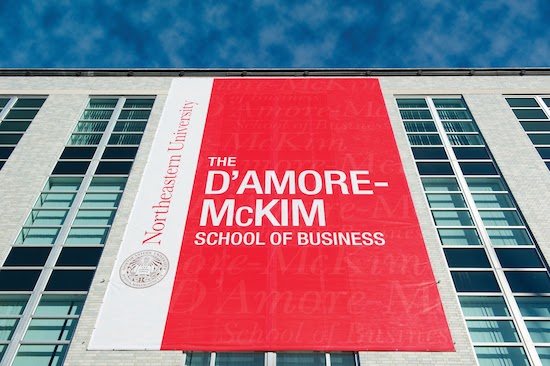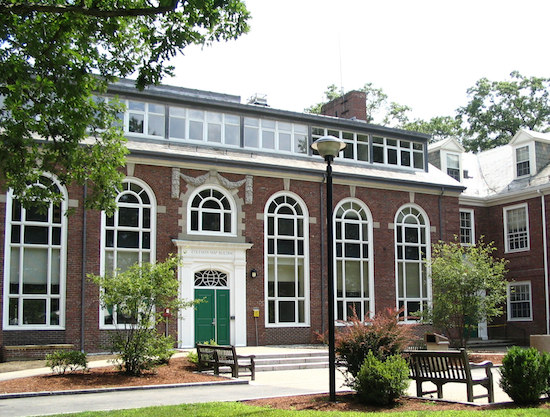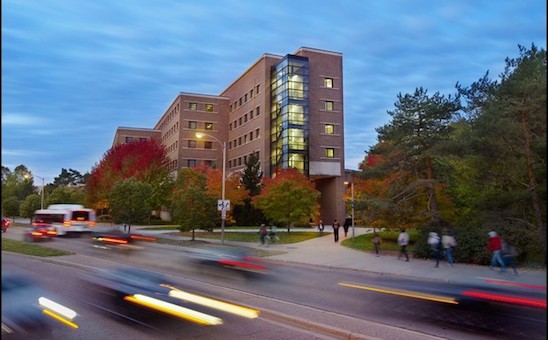A new record was established for U.S. universities last year: More international students packed their bags and headed into the U.S. for college than ever before. In the academic year 2012-2013, some 819,644 international students were enrolled in U.S. colleges, an increase of 7% from a year earlier.
Many of them ended up as business majors, though at many undergraduate business programs internationals tend be vastly outnumbered by their domestic classmates. At Indiana University in Bloomington, for example, 8% of the freshmen who entered the university in the fall of 2013 were international. But the percentage enrolled at Indiana’s prestigious Kelley School of Business was half that rate at just 4%.
Overall, international students only account for roughly 4% of total student enrollment in the U.S. But at many top business programs, there is significant international representation. At such top undergraduate programs as Wharton, Emory, and UC-Berkeley, for instance, one in every four students is from outside the U.S.
And there are other prominent schools where the percentages are even higher. At Northeastern University’s D’Amore-McKim School of Business, 34% of the students are international. At Babson College, some 26% of the undergraduate student population is from outside the U.S., from some 70 different countries around the world.
A new study finds that international undergrads have outnumbered international graduate students for the last two academic years, thanks mostly to scholarship programs in countries sending the most students abroad.
Nearly half (49%) of all international students enrolled for 2012-13 came from China, India and South Korea — even though numbers for the latter two declined from the 2011-12 academic year, down 4% and 2%, respectively. At the same time, 16 countries had an increase in 2012-13 over the previous academic year.
To compile our list of the top undergraduate business programs with the most international students, we focused only on the very best schools–those ranked in the top 100–and we relied on the data those schools provided Bloomberg BusinessWeek for its recent ranking of the best undergraduate programs. Our top 20 ranges from the University of Tulsa’s Collins College of Business, with 42% of enrolled students being international, to Purdue University’s Krannert School of Management, which reports 16% international enrollment.
1. University of Tulsa, Collins College of Business
800 South Tucker Drive
Tulsa, Oklahoma
International Students: 42%
Undergraduate Business Enrollment: 805
University Acceptance Rate: 41%
Poets&Quants 2014 Rank: NR
The Collins College of Business focuses on a comprehensive business education at the undergraduate and graduate levels with the opportunity to study traditional majors as well as energy management and international business. Located in Tulsa, Oklahoma, programs take advantage of the school’s petroleum-based history while looking forward to global business issues. Majors allow for portfolio management, creative thinking, and use of hands on technology. More than 1,000 undergrad and grad students work with faculty who encourage personal success while teaching business fundamentals and applications for the future.
2. Northeastern University, D’Amore-McKim School of Business
360 Huntington Ave.
Boston, Massachusetts
International Students: 34%
Undergraduate Business Enrollment: 3,712
University Acceptance Rate: 32%
Poets&Quants 2014 Rank: 35
Northeastern University’s D’Amore-McKim School of Business provides its students—undergraduate, graduate and executive—with the education, tools and experience necessary to launch and accelerate successful business careers. The School of Business offers both the standard five-year cooperative education model as well as a four-year cooperative education model leading to a Bachelor of Science degree in Business Administration (BSBA). D’Amore-McKim is globally recognized as one of the leading experience-based business schools preparing students for organizations seeking highly motivated business leaders.
3. Boston University, School of Management
595 Commonwealth Ave.
Boston, Massachusetts
International Students: 27%
Undergraduate Business Enrollment: 2,400
University Acceptance Rate: 37%
Average SAT: 1303
Poets&Quants 2014 Rank: 25
Unlike most business schools, at Boston University students begin their management training the first semester of freshman year. On your first day of class, they begin ‘decoding’ a company’s annual report. Right away, students start talking business. By the end of freshman year, students often know more than juniors in many other programs.
By junior year, every student is required to write a full business plan for a product she and a group of classmates will research and propose. They are promised to have the skills that will give them a leg up, first in interviews, then on the job. And through the Management Honors Program, a select group of outstanding students will have the opportunity to develop into a generation of management leaders.
4. Babson College
231 Forest St.
Babson Park, Massachusetts
International Students: 26%
Undergraduate Business Enrollment: 2,106
University Acceptance Rate: 28%
Average SAT Score: 1268
Poets&Quants 2014 Rank: 64
Babson invented the methodology for entrepreneurship education nearly half a century ago; today, Entrepreneurial Thought and Action® is still at the center of the Babson experience. In this highly collaborative community, through a blend of innovative, integrated curricular and co-curricular programs, students experience the world as it is. Gaining both functional business and foundational liberal arts knowledge, they are shaped into leaders who will reshape the world.
With an emphasis on Social, Environmental, Economic Responsibility, and Sustainability (SEERS) embedded into the experience, students here are taught that economic and social value creation are not mutually exclusive, but instead integral to each other. The fundamental business skills and entrepreneurial mindset they cultivate at Babson equips them to make a difference here on campus and around the world.
4. Michigan State University, Broad College of Business
103 Eppley Center
East Lansing, Michigan
International Students: 26%
Undergraduate Business Enrollment: 1,890
University Acceptance Rate: 69%
Poets&Quants 2014 Rank: 36
Students studying business at the Broad College gain a deep understanding of their chosen major as well as a broad understanding of how global business works. Undergraduate students are required to complete a core curriculum that exposes them to diverse subjects and develops a well-rounded business background. Within the undergraduate program, area requirements include writing, mathematics, integrative studies, basic disciplines and functional fields in business, and elective courses enhancing a student’s course of study.
An important component of the business curriculum is the major field of concentration, which is selected by each student upon admission to the Broad College. he college offers majors in accounting, finance, general management, hospitality business, human resource management, marketing, and supply chain management. Students are strongly encouraged to meet with their academic adviser to discuss major fields of concentration, electives, study abroad, community service, work experience, and leadership development opportunities. Students completing undergraduate programs in the Broad College receive a bachelor of arts degree.
















Questions about this article? Email us or leave a comment below.